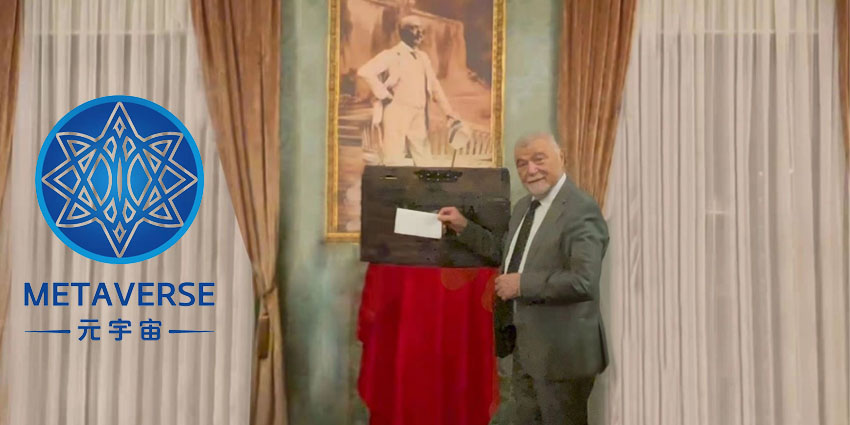Metaverse World, a fintech firm set on developing Metaverse technologies, equipment, applications, and digital currency trading, has received backing from the Croatian government for its launch.
The firm aims to develop a decentralised Metaverse Digital Citizen Platform for global users, based on blockchain technologies, to provide all digital citizens with a unique non-fungible token (NFT) to access the rising virtual, augmented, and mixed reality (VR/AR/MR) communications platform.
Metaverse World has been headquartered at the Tito Institute of Political Sciences, home to over 180 national presidents and previously tasked with training over 1,500 political leaders.
The news comes after Stjepan Mesic, Former President of the Republic of Croatia, voiced his support for Metaverse World in a letter in late November. Born in Orahovica, in December 1934, Mesic served as the President of Croatia in February 2000 with an additional term in January 2005.
Writing in his letter, Mesic stated he had always advocated for improved political and economic relations between Croatia and other countries, based on “elements of a market economy” and “principles of mutual respect of equal partners” in business and society.

The development of new technologies had become a “new step forward” in the digital world’s development, he said while offering his support for Metaverse World, adding,
“Metaverse […] let’s call it [the] new Internet that will become not only a virtual world but also interactive in the true sense of the word. The Metaverse era is a great opportunity for Croatia to become digitalized”
He stated he wanted to back Metaverse World as well as its founders and investors to reach common business interests “without bureaucratic barriers,” and that the Republic of Croatia would offer its “full support of all institutions” to realise the ambitions.
Speaking further, he cited new Croatian laws on digital nomads and efforts to boost digital finance and “the exchange of digital currencies,” as well as evidenced firms such as Rimac and Infobip, who rapidly adapted to “new world trends” to develop business visas and work permits to attract talent in Croatia.
Concluding, he offered his congratulations to Metaverse World, stating,
“I wish you success and give you my full support for the realization of the goals set by your mutual business cooperation”
Croatia Joins Global Metaverse Race
Croatia is one of many countries stepping forward to back the creation of a soverign Metaverse, and follows a number of crucial developments in the creation of the parallel digital world.
Delta Reality, a Zagreb-based firm, listed its Metaverse platform as a single NFT worth 8.88 Ethereum, or $31,591.22 USD in early October.
Following the sale, the Croatian firm’s Museum of Digital Life (MoDaL) plans to host digital Metaverse galleries, where users can attend and view immersive digital artworks and exhibitions.
The news comes just a month before The Barbadian Ministry of Foreign Affairs and Foreign Trade struck an unprecedented deal with digital real estate firm Decentraland to approve the sales as sovereign land, allowing the country to set up the world’s first Metaverse embassy in early November.
South Korea’s Ministry of Science and Information Communications Technology also announced $2.2 billion USD in investments to build hyperconnectivity infrastructure across the nation by 2025, which will incorporate emerging technologies such as blockchain, cloud computing, and Metaverse tools.
According to the Ministry, the investments would help boost South Korea’s “economic territory.”







